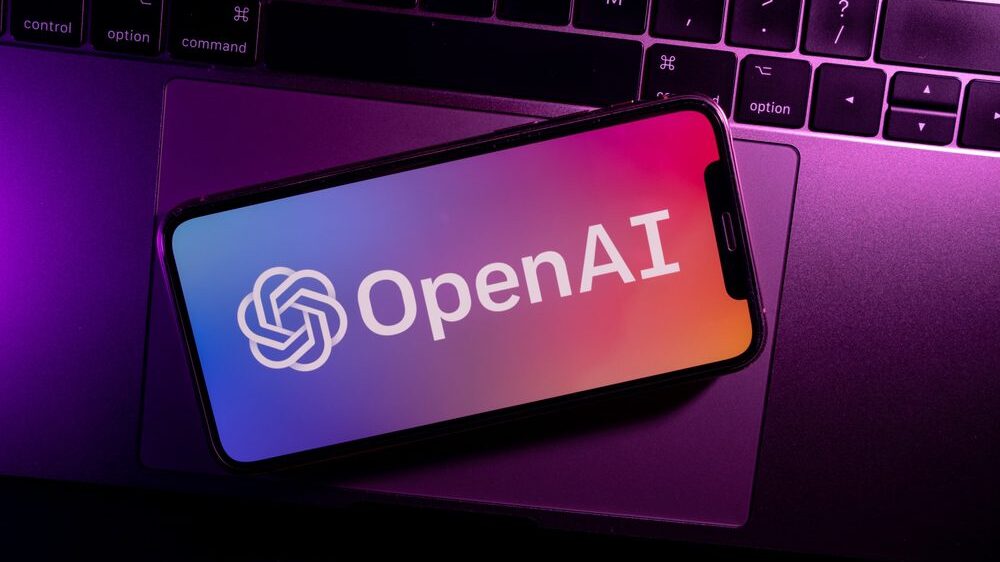
Photo: Vitor Miranda / Shutterstock.com
OpenAI, the renowned creator of the highly acclaimed ChatGPT bot, is embroiled in a contentious dispute with the European Union after its CEO, Sam Altman, suggested that the implementation of new regulations could potentially lead the company to withdraw from the bloc. This evoked the ire of EU industry commissioner Thierry Breton, who promptly accused Altman of resorting to “blackmail” tactics, AFP reported on Thursday, May 25th.
Altman, who is currently engaged in a global tour aimed at fostering relationships with influential figures and policymakers, made the ominous remarks during a press conference in London. According to the CEO, if Brussels were to adopt its controversial AI Act as it stands now—a regulation meant to shield the public and the markets from the technology’s harmful effects—OpenAI could potentially “cease operating” in Europe.
Breton took to Twitter to express his disdain and categorically condemned the use of what he branded “blackmail” as a means to impede the establishment of a comprehensive regulatory framework. “There is no point in attempting blackmail—claiming that by crafting a clear framework, Europe is holding up the rollout of generative AI,” the commissioner tweeted, adding that the EU is there to “assist” all the companies concerned in getting up to speed with the new norms.
There is no point in attempting blackmail — claiming that by crafting a clear framework, Europe is holding up the rollout of generative #AI.
— Thierry Breton (@ThierryBreton) May 25, 2023
To the contrary!
With the “AI Pact” I proposed, we aim to assist companies in their preparation to EU AI Act 🇪🇺https://t.co/gHsV69L81S pic.twitter.com/N5r83yWtIe
Generative AI is a subset of AI technology responsible for generating original content, such as essays, poems, and conversations based on minimal prompts. This revolutionary capability, as demonstrated by ChatGPT’s meteoric rise since its introduction last year, has captivated both industry leaders and the wider public. To be fair, generative AI could become so potent in a few years that there would be no point in attempting to hold up its widespread adoption.
The AI Act, as part of Europe’s wider ‘digital transition,’ was also addressed during The European Conservative’s recent panel discussion in Brussels, where experts weighed in on the ethical shortcomings of both novel technologies and the EU’s attempts to regulate them. “We should take a conservative approach to technological innovation and remember: it is an instrument, not a substitute,” said Carlos Perona, one of The European Conservative’s senior essayists.
Our third #apathforward event is starting now!
— The European Conservative (@EuroConOfficial) May 24, 2023
Interesting panel discussion on Europe’s ‘digital transition’, featuring @MPHoogeveen, Laetitia Pouliquen and @CarlosPerona13 pic.twitter.com/SpSM3cKXSk
OpenAI’s groundbreaking work has garnered the support of technology giant Microsoft, which has made substantial financial investments in the company and has already begun integrating its technology into various products, such as the now AI-enhanced Bing search engine.
Tech giant Google chose instead to enter in direct competition with OpenAI and recently rolled out its own version of ChatGPT, called ‘Google Bard.’ However—demonstrating how extensive the implications of the EU’s AI Act could be for the industry—Google chose to make its language model inaccessible in Europe for the moment, clearly part of a wait-and-see strategy as to what the regulation would entail.
#bard is available in 180 countries, but a couple of important ones are still missing: Canada, Brazil, China and all of the EU: pic.twitter.com/xK0bMUy1Pa
— Mathijs Vogelzang (@thijser) May 12, 2023
It is worth noting that while the text is posed to be finalized relatively soon, the regulatory framework is not expected to be fully operational until the end of 2025, which can give ample time for all concerned parties to revisit and amend the most critical parts.
To be fair, Altman did not issue any explicit “threats,” as Breton seems to have suggested, but merely implied that Brussels might need to meet him halfway on some issues—simply because of the nature of the technology itself.
“If we can comply, we will, and if we can’t, we’ll cease operating,” the OpenAI CEO said, pointing out that there are “technical limitations to what’s possible.”
Weighing in on the issue, Microsoft President Brad Smith said during an event on Thursday, May 25th, that he was optimistic “reason will prevail” and that big tech and EU legislators will be able to reach an acceptable compromise.
The standoff between OpenAI and the European Union points to an uncertain future for AI regulation and its impact on the industry. At some point, the EU will have to accommodate at least a few of the wishes of these companies, because it simply can’t afford to risk its global competitiveness by letting the most influential AI giants leave the European market.
